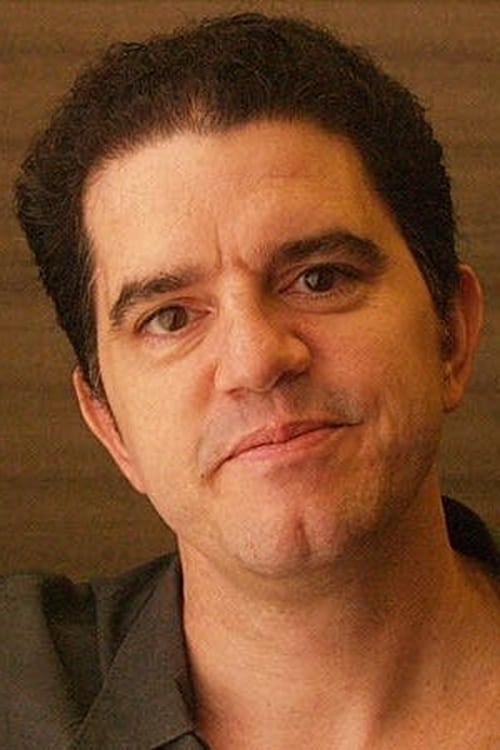Discover
-

Tom Hanks
Screenplay -

Michael Minkler
Sound Re-Recording Mixer -

Steven Quale
Second Unit Director -

Julie Weiss
Costume Design -

Michael Yahn
Stunts -

David Tichauer
Dialogue Editor -

Aaron Schneider
Director -

Terri Douglas
ADR Voice Casting
-
 Manuel São Bento
6/23/2021 3:58:40PM
Manuel São Bento
6/23/2021 3:58:40PM
If you enjoy reading my Spoiler-Free reviews, please follow my blog @ https://www.msbreviews.com I love war movies, especially when they're able to depict the action in such an immersive way that the viewers really feel like they're there. In my opinion, it's the genre that most requires a technically outstanding production quality. The visual effects need to be absolutely perfect. The cinematography must capture the intensity of the battlefield. The sound design has to be incredibly powerful. Finally, a war film requires the most epic, nail-biting, chill-inducing score so the audience can actually feel the unbelievable atmosphere that this genre usually possesses. Greyhound has one of the greatest actors of all-time as its protagonist, but does it check the points mentioned above? Yes and no. Technically, this movie barely has any issues. The VFX look utterly stunning, no doubt about it. Shelly Jackson, the cinematographer, has one of the most challenging tasks a filmmaker can have: filming in a water environment. He deals with this problem surprisingly well, by allowing the viewers to fully understand everything that's going on for the entire runtime. The score (Blake Neely) is emotionally powerful, but I believe it could have elevated a lot more action sequences than it actually does. The editing (Mark Czyzewski, Sidney Wolinsky) is excellent as well. So, what failed? Well, I will always defend that the two pillars of any film are its story and characters. Without one of these two, very few movies can survive. Without the two, no film can. I have to use Dunkirk as an example here. Christopher Nolan spent the whole marketing campaign saying that his movie was about the depiction of an actual war. About how it felt to actually be in one. Therefore, Dunkirk barely has any sort of character development… because not only it never intended to, but it doesn't need it to accomplish its goal. However, its storytelling follows a distinct method that allows for some exhilarating moments in the air, ground, and sea. Its action sequences are so powerful and incredibly realistic that I consider it the most immersive war experience I have ever experienced. Thus, the lack of compelling characters didn't really bother me because I was there to try to feel what it's like to be in a war. Greyhound also doesn't have one single character who's well-developed or well-explored. They all seem to have names, and that's it. Tom Hanks is obviously impressive in his acting role… But his skills as a screenwriter definitely need to improve. Like I insinuate above, there's no problem in having depthless characters, as long as the story and, in this case, the action, work. None do. I'm not lying when I write that 90%+ of the script is Hanks yelling "turn right", "hard left", "slow down", and hundreds of other types of direction guidelines in nautical language. The action is lackluster. Basically, the whole film is a repetitive, tiresome cycle of a U-boat showing up on the radar, Hanks looking through several windows shouting the same nautical stuff to his crew, and trying to eliminate the enemy's ships. I could feel the suspense and the tension that Hanks' ship emanated. I love the first encounter and pursuit of the first U-boat, it's exceptionally filmed and quite riveting. But from this moment on, it's just the same sequence stuck on repeat mode until no more ships exist. So, even though the set pieces look marvelous, these scenes quickly lose impact. Aaron Schneider should have found a way of elevating Hanks' screenplay, but unfortunately, he can only do so much. By the end, I'm left with a character whose name I can barely remember (honestly, I needed two full minutes to remember the protagonist's name after the movie ended). All in all, Greyhound could have easily ended up as a small-scale Dunkirk. Technically, it has everything it needs to be a brilliant war flick: beautiful visual effects, powerful sound design, impeccable cinematography, and an epic score. Disregarding one of the two pillars of filmmaking (story and characters) is only an issue if the other also doesn't work. The lack of any character development can be perfectly compensated in a war film, as long as the method of storytelling allows for a unique experience packed with realistic and immersive action. However, Aaron Schneider's movie doesn't possess a compelling story, and the action set pieces are stuck in a dull cycle of hunting U-boats in the exact same way throughout the whole film. The first sequence is packed with tension and suspense, but from that moment on, the entertainment levels drop drastically. Tom Hanks is fantastic as the protagonist, but his screenplay is far from truly being one. All dialogues revolve around characters (mostly Hanks's) calling nautical instructions for most of the runtime and looking either through a window or binoculars. In the end, it's underwhelming and disappointing, but I still recommend it to the war genre's aficionados. Rating: C
-
 Louisa Moore - Screen Zealots
6/23/2021 3:58:43PM
Louisa Moore - Screen Zealots
6/23/2021 3:58:43PM
When you hear the words “a Tom Hanks war movie,” there are certain expectations of quality that flash in your head (with good reason). Perhaps that’s why “Greyhound” feels like such a disappointment. This World War II military action film is one of the most boring war movies I have ever seen. The screenplay, written by Hanks and based on the novel “The Good Shepherd” by C.S. Forester, recounts the fictional story of Captain Krause (Hanks), a veteran Navy officer who is serving as a first-time captain of a U.S. destroyer. Krause is tasked with protecting a convoy of three dozen ships carrying thousands of soldiers and supplies across the Atlantic. Krause and his men must navigate the treacherous waters for five days with no air support, relying only on the aid of two additional escort ships in an area of the ocean dubbed the “Black Pit.” Things get really bad when the fleet is attacked by Nazi U-boats, and a lengthy battle of ships vs. submarines breaks out. The story is inspired by events that took place during the Battle of the Atlantic in the early days of WWII, but it’s not a true story. If that wasn’t enough of a bummer, the film is mediocre all around. From the dreadful original score (by Blake Neely) to the weak special effects and dreary cinematography, the movie screams “low budget” in more ways than one. It’s not cinematic, and the production values look and feel cheap. The film is poorly directed (by Aaron Schneider), who seems to hold a pathetic understanding of the architecture of visual excitement and suspense. Hence, the wartime action is mediocre and dull, and the entire project is little more than a crudely edited jump cut fiesta. Hanks has written his character in such a one-dimensional manner that all Captain Krause really does is quote Bible verses and bark military lingo. The film assumes an advanced knowledge of technical military terms, making it all to easy to check out of the experience. It’s also overly religious, to the point that it could easily be a faith-based film. “Greyhound” is nothing more than one long, non-exciting battle between a warship and submarines. There are far too many good war movies to spend your time watching than this blunder.
-
 tmdb28039023
9/3/2022 3:21:22PM
tmdb28039023
9/3/2022 3:21:22PM
I never thought I'd see Tom Hanks starring in a feature film with the same production values as a SyFy Channel original movie, but here is Greyhound – an otherwise tight, lean, and straightforward picture. Director Aaron Schneider and Hanks, who also wrote the script, do a good job developing suspense and urgency; for example the opening sequence wherein the crew of the Fletcher-class destroyer Greyhound patiently stalks and intercepts a German submarine before eventually blowing it up with depth charges, or when, after the hunter becomes the hunted and the American destroyer comes under heavy fire, the captain of the Greywolf – another, much more fearsome, German submarine – radios the Greyhound to taunt the crew with omens of doom; other than this disembodied voice we hear or see no Nazis, and the Greywolf, like Moby Dick, appears only until the very end, all of which adds to the sense of constant, ever-present danger. Greyhound is best when decisions are made and orders are given on the ship’s bridge. Unfortunately the thrill of the hunt loses its impact when we peek outside and see that the Greyhound is surrounded by a completely computer-generated sea – as if it's sailing through an ocean of half-congealed grape jelly. Say what you will about Waterworld, but at least it was honest; I don't care if they used a real body of water or just dug a giant pit and filled it one bucket at a time – the point is, it was honest-to-goodness H2O. On the other hand, Greyhound's Atlantic Ocean and everything in it – ships, submarines, explosions – achieves a level of fakery that not even Hanks's considerable gravitas can overcome. As far as I'm concerned, he's just playing a real-time strategy video game, to the point that when someone died I didn't care; I would just tell myself, “it’s okay, it was just another non-playable character.”







Tom Hanks
Commander KrauseManuel Garcia-Rulfo
LopezElisabeth Shue
EvelynStephen Graham
Charlie ColeLee Norris
Messenger #2Dominic Keating
HarryThomas Kretschmann
Grey Wolf (voice)Karl Glusman
Eppstein